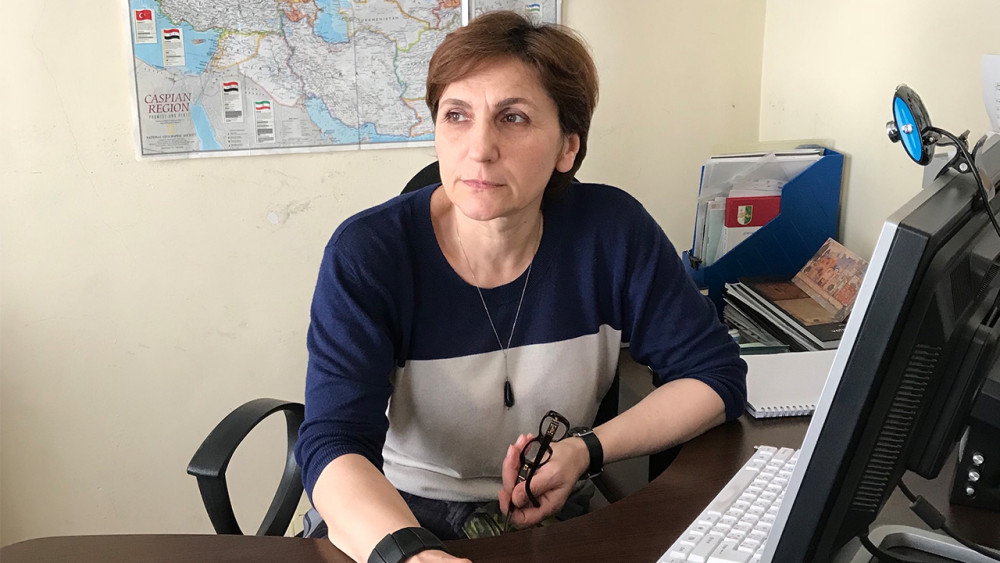
Asida Shakryl was the co-director of The Center for Humanitarian Programmes (CHP) at the time of the interview and was appointed Ombudsperson in Abkhazia in March 2018. CHP is one of Conciliation Resources’ longest standing partners in the Caucasus. When it began in 1994, CHP focused on psychological rehabilitation for war victims. It has since engaged with civic education, human rights issues and democratic development in Abkhazia, and for 20 years has been involved in a range of internal and regional dialogue processes.
How would you describe the partnership you have with Conciliation Resources?
I think what distinguishes our relationship with Conciliation Resources is the fact that our partnership is not one of ‘donor’ and ‘implementing organisation’. We are partners who together define a goal, and then try to understand how we can achieve this. We spend a lot of time studying and examining the situation, which helps to give us a voice, as living in the context we know the situation well.
In a partnership, each side brings different things. What was it that you brought to the partnership, and what do you feel Conciliation Resources brought?
In terms of what I have brought to the partnership, I think I have always tried to be very honest in the assessment of the needs of the people of Abkhazia and possible responses to these needs. To work effectively in the region, international actors need a comprehensive and precise picture of what the real needs are so they can adjust and adapt their decisions and actions.
What Conciliation Resources has brought to the partnerships over the last twenty years is that they have imparted a lot of knowledge and information. They have allowed us to learn from them through a variety of formats including study trips, comparative conflict analysis, and helping us to engage with more diverse actors. They offered opportunities to learn and gain from international experience to a whole generation of our civil society. Thanks to this partnership we have learned to address problems in an effective and constructive way.
What has this partnership helped you achieve in terms of impact?
There have been some very important, ground-breaking projects that Conciliation Resources has helped carry out in the Georgian-Abkhaz context. One which stands out is the International Summer University in Abkhazia which we coordinated in partnership with Conciliation Resources and the Sukhum Media Club for over five years. Students from all over the world were taught by experts from across the regions, as well as further afield, on a wide range of topics.
It was a fantastic opportunity for Abkhaz students who don't have the chance to study abroad. It was also very important that there were Georgian students who participated. This was a unique opportunity for them to visit, and hear a different perception of the conflict - often for the first time.
How did you establish trust and overcome difficulties during the partnership?
The trust is there because for the last twenty years we have always been open and honest with each other! This has helped us to find solutions to disagreements. The partnership model we use has flexibility at its core which makes it easier to overcome difficulties and resolve tensions.


